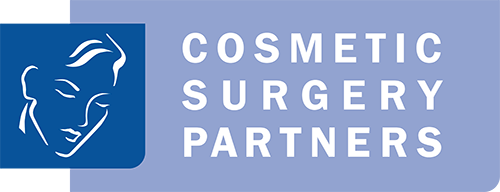Breast Surgery FAQs
Breast Surgery questions
How long does the operation take?
Although some surgeons aim for operations taking minutes, a good quality BA takes up to one hour.
Can it be done under local anaesthetic?
Technically, yes, but for reasons of comfort a brief general anaesthetic is preferred.
Can it be done as a day-case?
Yes, it is very common to have BA as a day-case, but it is wise to not travel too far from the hospital on the first night in the rare event of a complication.
Will I have wound drains?
No, it is neither necessary nor preferred with respect to encapsulation rates to have drains for a primary BA. It is, however, usual to have drains – usually for only 24 hours – when secondary or revision surgery has been performed.
Will it hurt?
This depends on many factors, including the individual’s pain threshold and the technique employed, but today’s best procedures usually give little or no pain, with the vast majority of women being able to return to their activities of daily living the very next day.
Is it more painful under the muscle?
Again, if done properly, there is no reason why it should be more painful, although there are some who have intertwined muscles that may be more sore for a day or so afterwards.
What is the recovery time?
One should be back to normal activities within a day or two, but driving should be left for a week and aerobic exercise or the gym 4-6 weeks. You should be back at work after a week, but this may be influenced by exactly what job you do.
Are there any complications?
As it is a surgical procedure, there is the potential for unwanted consequences such as bleeding and infection, which are rare. Your surgeon should discuss these in detail with you before surgery.
What is hardening and is it dangerous?
Also known as ‘rejection’, ‘encapsulation’ and ‘adverse capsular contracture’, this is simply the body’s response to any implant (such as heart valves, neurological shunts and the like) whereby protective scar tissue seals off the foreign body. In a small minority, between 2-5%, this natural reaction will be more active and cause the breast to appear firm. Whilst not dangerous, it can distort the breast and affect the cosmetic result.
How will I scar, where will it be and can I help it in any way?
How each individual scars depends on many factors including genetics. Look at any other scars you have, either from surgery or trauma, to give yourself an idea. The most common site nowadays is in the crease beneath the breast (the infra-mammary fold), but some prefer the armpit. The only thing we know helps to speed scar maturation is massage.
How long will the prosthesis last?
Today’s implants are 5th generation and are the result of nearly 50 years’ continual development. Scientific studies indicate that they are much more durable than their predecessors, but no exact figures are available. We have stopped recommending replacement every 10 years.
Will I require surgery in the future?
This will depend on many factors, but remember that the breast is an active organ that changes not only with age, but each month with hormonal cycles and with pregnancy and breast-feeding. As the prostheses continually improve in quality and durability, implant rupture becomes less frequent so an altered breast around the implant will be more common.
Am I a suitable candidate?
If medically fit with no medical problems, there should be no particular reason why not, but each patient should be individually assessed by the surgeon. Each patient should be well enough informed to balance the risks and benefits of any surgical procedure.
Will the final result be visible straight after the operation?
It is very important to understand that each patient will react differently and a teenager with small breasts will be very different to a mature mother who has had several children and breastfed them. They often appear too high and too round in the first few weeks, but settle over 3-6 months as the tissues adjust to the new weight and volume.
Why should I take the prescribed antibiotics?
Whilst important for infection (which usually causes loss of the implant), the latest research indicates that antibiotics both during and after surgery can reduce the frequency of capsular hardening.
Experience of the surgeon?
There are several things that can be checked, but all surgeons in the UK must be on the GMC register, ideally the Specialist Register for Plastic Surgery. Those trained in the UK will have the FRCS(Plast), ie., a fellowship of the Royal College of Surgeons with specialist training in Plastic & Reconstructive surgery. The surgeon should be undertaking such surgery on a regular basis and be able to show a range of results – good and less good – from previous patients.
Breast Implant Associated – Anaplastic Large Cell Lymphoma (BIA-ALCL)
There is growing concern about the topic of Breast Implant Associated – Anaplastic Large Cell Lymphoma (BIA-ALCL). It should be noted that this very rare condition is a lymphoma and not cancer of the breast tissue. The Medicines and Healthcare products Regulatory Agency (MHRA) currently advises implants are still regarded as safe for use in augmentation and reconstruction operations. The MHRA does not suggest a change in practice with the current data available.
The current recommendation from The British Association of Aesthetic Plastic Surgeons (BAAPS) can be found via the link below:
https://baaps.org.uk/_userfiles/pages/files/chair_of_the_praseag_statement_final442019.pdf
Also check the information on Medicines and Healthcare products Regulatory Agency




